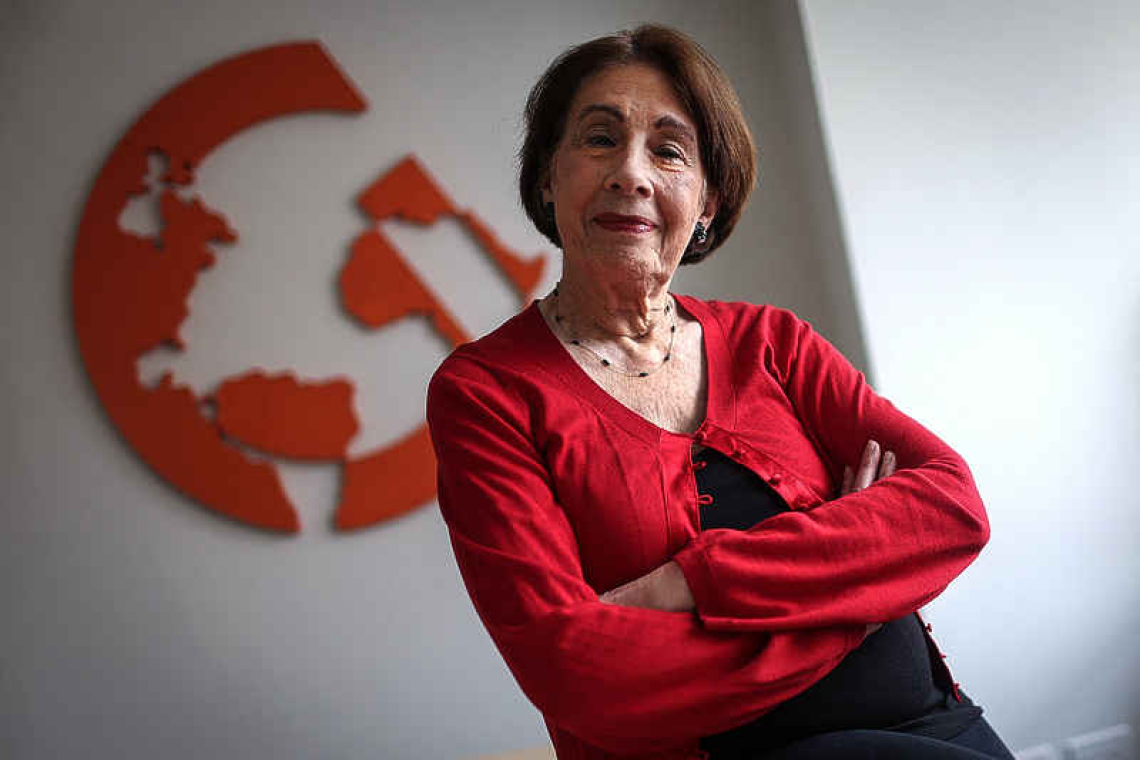WASHINGTON--The abortion opponents who are seeking to convince the U.S. Supreme Court to limit access to the abortion pill mifepristone point to three studies by Gynuity Health Projects, a New York-based women's health research group, to back up their arguments that it is unsafe despite its regulatory approval decades ago.
But the way the research has been prominently cited by the plaintiffs in their bid to limit how the pill is prescribed and distributed is bewildering to Dr. Beverly Winikoff, Gynuity's president, given that the conclusions broadly support easier access to the medication. "They live on a different planet," Winikoff said of the plaintiffs during an interview at her Midtown Manhattan office.
"You can always distort information and say things that aren't true." The Supreme Court, whose conservative majority in 2022 overturned the landmark 1973 Roe v. Wade ruling that had recognized a constitutional right to abortion, is set to hear arguments in the case on Tuesday. President Joe Biden's administration is appealing a lower court's decision that would roll back U.S. Food and Drug Administration actions in 2016 and 2021 to ease access to mifepristone.
A ruling in favour of the plaintiffs could undercut federal regulatory authority over drug safety beyond just this medication. The plaintiffs defend how they presented the research findings. "We simply took the FDA's characterizations of these studies and presented them to the court," said Erik Baptist, a lawyer at the Alliance Defending Freedom conservative religious rights group representing the plaintiffs. Mifepristone is taken with another drug called misoprostol to perform medication abortions, which account for more than 60% of U.S. abortions.
A series of Republican-backed abortion bans of varying strictness have been enacted by states since the 2022 Supreme Court ruling. Some states also impose their own restrictions on medication abortion. The plaintiffs in the Supreme Court case are a group of medical associations and four doctors who oppose abortion on religious and moral grounds. To them, the FDA's decisions to relax mifepristone restrictions unlawfully placed women at risk. The regulatory changes included allowing for medication abortions at up to 10 weeks of pregnancy instead of seven, and for mail delivery of the drug without a woman first seeing a clinician in-person.
The FDA gave mifepristone regulatory approval in 2000. It has said that after decades of use by millions of women in the United States and around the world, mifepristone has proven "extremely safe," and that "study after study" has shown that "serious adverse events are exceedingly rare." The plaintiffs question the FDA's judgment, in part by pointing the Supreme Court in their written filings to the three studies published by Gynuity researchers in 2019 and 2021 as part of a project called TelAbortion, which evaluated the feasibility and safety of providing abortion drugs via videoconference and mail.
The FDA considered those studies, among others, in eliminating in-person visits. The studies, the plaintiffs told the justices, show "troubling rates of emergency-room visits, urgent care trips, and unplanned medical encounters" and "increased risk" for patients. But the studies report that "serious adverse events" such as hospitalizations or blood transfusions are rare. One of them specified that none of the 0.9% of serious outcomes would have been avoided with in-person screening. Winikoff, who has studied medication abortion for more than three decades, said using emergency room or urgent care trips as a proxy for danger paints a false narrative, as most of these visits are not for serious medical emergencies, despite where they take place. "You're counting apples and oranges," Winikoff said, adding: "This whole thing is misleading the public."







